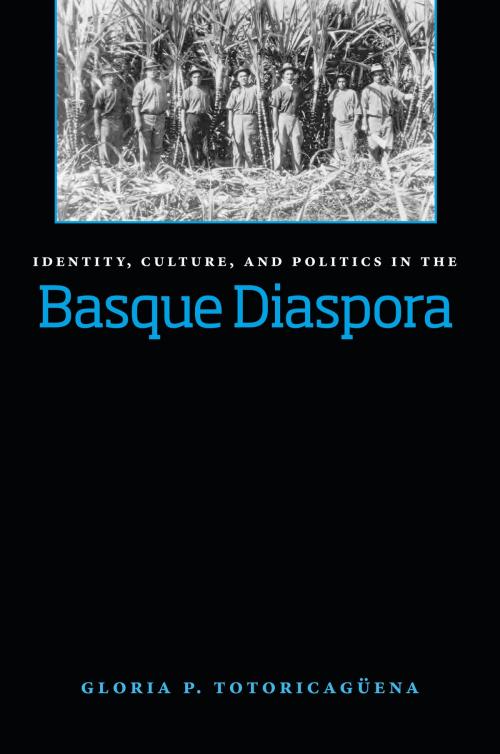Identity, Culture, And Politics In The Basque Diaspora
Nonfiction, Social & Cultural Studies, Social Science, Cultural Studies, Ethnic Studies, Anthropology| Author: | Gloria Pilar Totoricagüena | ISBN: | 9780874175752 |
| Publisher: | University of Nevada Press | Publication: | March 20, 2015 |
| Imprint: | University of Nevada Press | Language: | English |
| Author: | Gloria Pilar Totoricagüena |
| ISBN: | 9780874175752 |
| Publisher: | University of Nevada Press |
| Publication: | March 20, 2015 |
| Imprint: | University of Nevada Press |
| Language: | English |
Gloria P. Totoricagüena presents a thorough comparative examination of the remarkable endurance of Basque identity and culture in six countries of the far-flung Basque diaspora. Using the results of interviews and extensive anonymous surveys with more than eight hundred informants in the diaspora, plus extensive research in archives and printed sources in all six of her study countries, Totoricagüena reveals for the first time the complex and interrelated universe of these dispersed Basques. She explores the elements of their migration patterns and the institutions that have encouraged identity maintenance, the impacts on established communities of each new wave of immigrants, and the nature of economic and political ties with the homeland.
Totoricagüena offers a superb quantitative study of an aspect of Basque culture that has been largely ignored by scholars—the diaspora. In doing so, she enlarges the understanding of cultural identity in general—how it is defined and preserved, how it evolves over time, and how both the politics of distant places and the most intimate family habits can shape an individual’s sense of self. Identity, Culture, and Politics in the Basque Diaspora is a major contribution to the knowledge of Basques and their persistent political and cultural traditions.
Gloria P. Totoricagüena presents a thorough comparative examination of the remarkable endurance of Basque identity and culture in six countries of the far-flung Basque diaspora. Using the results of interviews and extensive anonymous surveys with more than eight hundred informants in the diaspora, plus extensive research in archives and printed sources in all six of her study countries, Totoricagüena reveals for the first time the complex and interrelated universe of these dispersed Basques. She explores the elements of their migration patterns and the institutions that have encouraged identity maintenance, the impacts on established communities of each new wave of immigrants, and the nature of economic and political ties with the homeland.
Totoricagüena offers a superb quantitative study of an aspect of Basque culture that has been largely ignored by scholars—the diaspora. In doing so, she enlarges the understanding of cultural identity in general—how it is defined and preserved, how it evolves over time, and how both the politics of distant places and the most intimate family habits can shape an individual’s sense of self. Identity, Culture, and Politics in the Basque Diaspora is a major contribution to the knowledge of Basques and their persistent political and cultural traditions.















